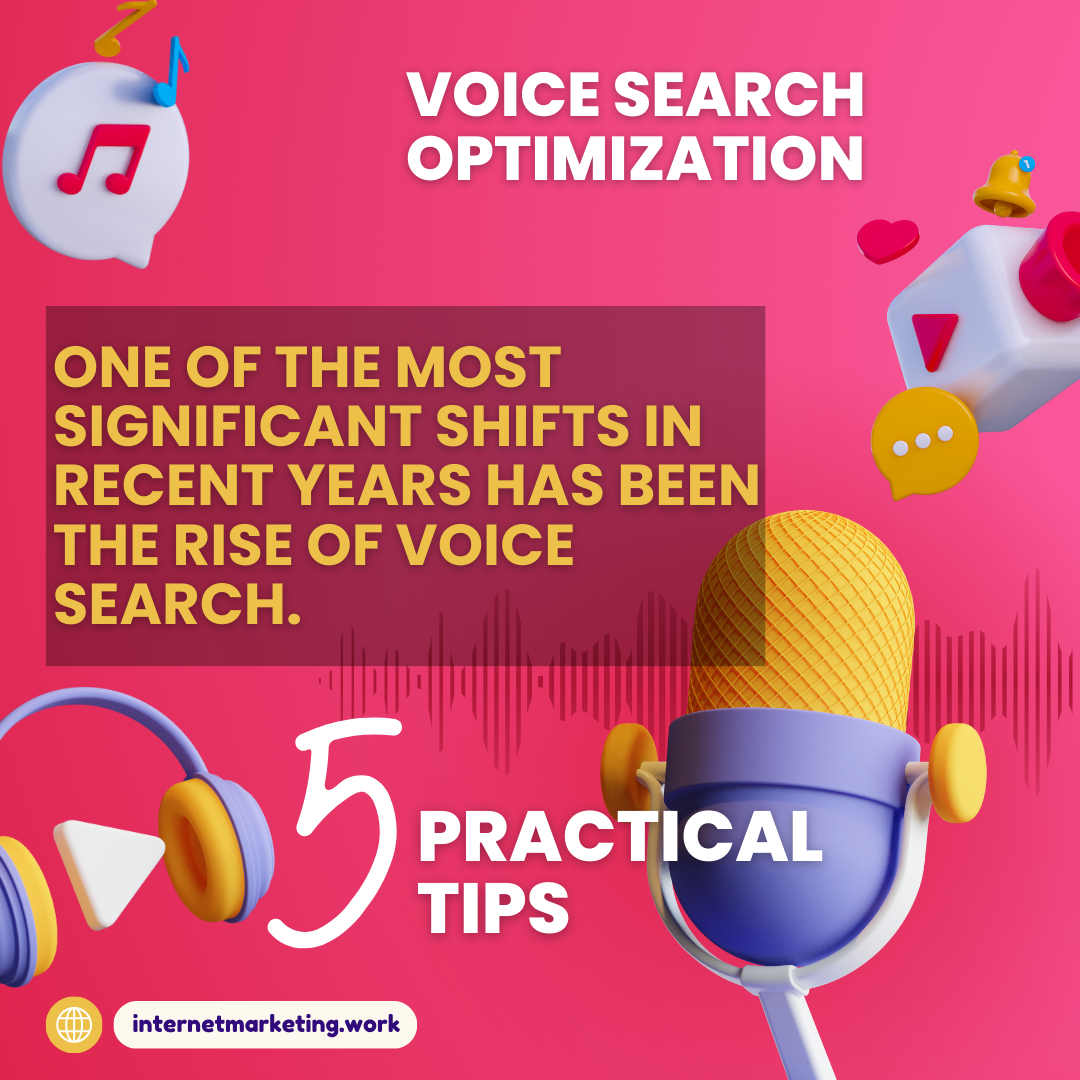In the ever-evolving landscape of digital marketing, staying ahead of the curve is crucial. One of the most significant shifts in recent years has been the rise of voice search. With smart speakers like Amazon Echo, Google Home, and voice assistants like Siri and Alexa becoming ubiquitous, optimizing your content for voice queries is no longer optional—it’s essential.

Why Voice Search Matters
Changing User Behavior:
- People interact with voice assistants differently than they do with traditional search engines.
- Voice searches tend to be more conversational, natural, and question-based.
Explosive Growth:
- Voice search usage has skyrocketed, and it’s projected to continue growing.
- By 2024, it’s estimated that half of all searches will be voice-based.
Strategies for Effective Voice Search Optimization
1. Conversational Keywords and Long-Tail Phrases
- Traditional keyword research is still relevant, but focus on natural language.
- Think about how users would phrase their queries verbally.
- Use long-tail keywords that mimic real conversations.
2. Anticipate User Intent
- Understand the context behind voice queries.
- What problem is the user trying to solve? What information do they seek?
- Craft content that directly addresses these intents.
3. Provide Concise, Relevant Answers
- Voice search results often feature featured snippets or direct answers.
- Aim for succinct, informative responses.
- Use structured data markup to enhance visibility.
Practical Tips for Implementing Voice Search Optimization
Optimize Local Listings:
- Many voice searches are location-based (e.g., “Where’s the nearest coffee shop?”).
- Ensure your business information is accurate on platforms like Google My Business.
Mobile Friendliness Matters:
- Voice searches are often performed on mobile devices.
- Optimize your website for mobile responsiveness and fast loading times.
FAQ Pages and Q&A Content:
- Create FAQ pages that address common questions related to your industry.
- Use natural language in your answers.
Featured Snippets:
- Aim to appear in featured snippets by providing concise answers to common queries.
- Structure your content logically.
Test Voice Queries Yourself:
- Use voice search to explore how your content ranks.
- Identify areas for improvement.
Mobile-First Indexing:
Google now prioritizes mobile versions of websites for indexing and ranking.
Ensure your website is mobile-friendly, loads quickly, and provides an excellent user experience on smartphones and tablets.
Optimize images, use responsive design, and test your site across various devices.
Structured Data and Rich Snippets:
Implement structured data markup (such as Schema.org) to enhance search results.
Rich snippets provide additional information (like star ratings, product prices, and event details) directly in search listings.
Leverage structured data to stand out and improve click-through rates.
In summary
Voice search optimization isn’t just about algorithms; it’s about understanding human behavior and delivering valuable, conversational content. As voice technology continues to evolve, staying adaptable and user-focused will be key to success.


